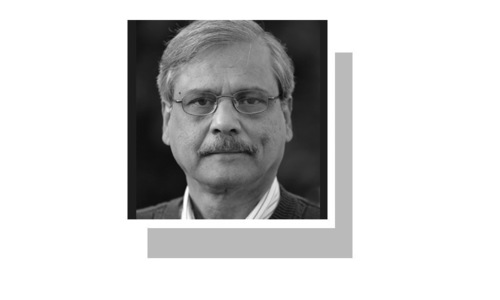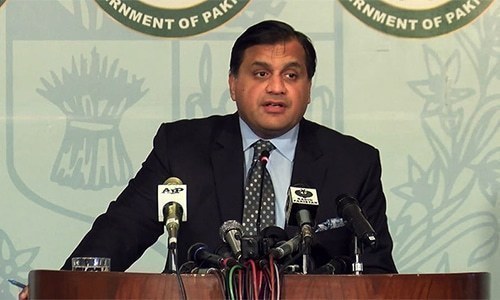WASHINGTON: The world’s three major powers — the United States, Russia and China — have agreed to ensure that Afghanistan never becomes a source of threat to any of them, according to US special envoy Zalmay Khalilzad.
In a separate statement, the US State Department said on Saturday the three powers had also agreed to ensure that Afghans exercised their right to decide their own future.
Representatives of the three countries met in Washington on Thursday and Friday to coordinate their strategies for restoring peace and stability to Afghanistan. This was their first joint meeting since the United States started holding direct talks with the Taliban militants. “The parties exchanged views on the current status of the Afghan peace process and discussed common efforts to bring peace, prosperity and security to Afghanistan,” the State Department said.
Take a look: Any agreement on Afghan crisis to address Pakistan’s equities: US
“They underscored their respect for the sovereignty, independence, and territorial integrity of Afghanistan, as well as Afghanistan’s right to make its own political, security and economic decisions.”
US, Russia and China will continue to seek joint efforts on Afghan peace, says State Department
Mr Khalilzad, who leads the US team in the talks with the Taliban, attended the trilateral talks. In a tweet released after the talks, he wrote that he first held separate meetings with his counterparts from Russia, China and the European Union before joining them on a working lunch.
“Welcome the robust interest in Afghan Peace Process,” he wrote. “We respect Afghan sovereignty, want peace for all Afghans and seek an Afghanistan that is never a source of threat for any of us.”
The State Department said the United States, China and Russia had agreed to continue further discussions as “the parties will continue to seek common efforts and coordination on the Afghan peace process”.
The exact date and venue for the next meeting will be decided through diplomatic channels.
The meeting followed the fifth round of US-Taliban talks in Doha, Qatar, late last month. The talks focused on four key points: Counterterrorism assurances, troop withdrawal, intra-Afghan dialogue, and a comprehensive ceasefire.
While there seems to be an understanding on the first two points, the Taliban are refusing to hold talks with the Afghan government and appear reluctant to enforce a comprehensive ceasefire.
Published in Dawn, March 24th, 2019















































